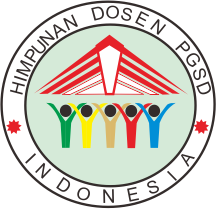STRENGTHENING CHARACTER EDUCATION IN ADIWIYATA SCHOOLS
DOI:
https://doi.org/10.30595/dinamika.v15i1.16033Keywords:
Adiwiyata School, Students, Character Education.Abstract
The young generation's low concern for the environment and rampant anti-social behavior were reasons for implementing character education, especially in Adiwiyata schools. Strengthening character education in schools was very important. This study aimed to analyze the strengthening of character education at Adiwiyata schools, especially at Keturen 01 State Elementary School Tegal. The research method was qualitative, a type of case study. The subjects were students of class 4 Keturen 01 State Elementary School Tegal. Researchers collected data through in-depth interviews, observation, and documentation; he tested the validity of the data using technique and source triangulation. Data analysis included collecting data, sorting data, categorizing the data, and concluding. Based on research results, strengthening character education at Adiwiyata schools was developed based on the environment. Character education was carried out by implementing the dimensions of the Pancasila student profile. Teachers became facilitators in character education in schools, while students were trained and accustomed to thinking and behaving following Pancasila values and caring for the environment. These activities were carried out through learning activities and habituation activities at school. Based on this, the conclusion was that strengthening character education in schools had been going well. Students and teachers could overcome the obstacles.
References
Afriyeni, Y. (2018). Pembentukan karakter anak untuk peduli lingkungan yang ada di sekolah adiwiyata mandiri SDN 6 Pekanbaru. PAUD Lectura: Jurnal Pendidikan Anak Usia Dini, 1(2), 123-133.
Alotaibi, B. A., Kassem, H. S., Abdullah, A. Z., & Alyafrsi, M. A. (2020). Farmers’ awareness of agri-environmental legislation in Saudi Arabia. Land use policy, 99, 104902.
Aprilianto, R. N., & Arief, A. (2019). Sekolah Adiwiyata Dalam Dimensi Karakter Dan Mutu Pendidikan. TRIHAYU: Jurnal Pendidikan Ke-SD-an, 6 (1).
Aziz, A. A., Hidayatullah, A. S., Budiyanti, N., & Ruswandi, U. (2020). Pembelajaran Pendidikan Agama Islam (Pai) Di Sekolah Dasar. Taklim: Jurnal Pendidikan Agama Islam, 18(2), 131-146.
Bassi, I., Gori, E., & Iseppi, L. (2019). Assessing environmental awareness towards protection of the Alps: a case study. Land Use Policy, 87, 104028.
Chen, X., Huang, B., & Lin, C. T. (2019). Environmental awareness and environmental Kuznets curve. Economic Modelling, 77, 2-11.
Daryanto, J. (2018). Penggunaan Media Pembelajaran Video Interaktif Untuk Meningkatkan Pemahaman Tembang Macapat Dalam Pembelajaran Bahasa Daerah Pada Siswa Sekolah Dasar. Jurnal Pendidikan Dasar, 6(1).
Hidayati, N., Hidayati, D., Saputro, Z. H., & Lestari, T. (2022). Implementasi Pembelajaran Projek pada Sekolah Penggerak di Era Digital. Journal of Education and Teaching (JET), 4(1), 69-82.
Ismail, S., Suhana, S., & Zakiah, Q. Y. (2021). Analisis Kebijakan Penguatan Pendidikan Karakter dalam Mewujudkan Pelajar Pancasila di Sekolah. Jurnal Manajemen Pendidikan Dan Ilmu Sosial, 2(1), 76-84.
Jasmana, J. (2021). Menanamkan Pendidikan Karakter Melalui Kegiatan Pembiasaan Di Sd Negeri 2 Tambakan Kecamatan Gubug Kabupaten Grobogan. ELEMENTARY: Jurnal Inovasi Pendidikan Dasar, 1(4), 164-172.
Juliani, A. J., & Bastian, A. (2021, May). Pendidikan karakter sebagai upaya wujudkan Pelajar Pancasila. In Prosiding Seminar Nasional Program Pascasarjana Universitas PGRI Palembang.
Mulyani, D., Ghufron, S., & Kasiyun, S. (2020). Peningkatan Karakter Gotong Royong di Sekolah Dasar. Lectura: Jurnal Pendidikan, 11(2), 225-238.
Munawar, S., Heryanti, E., & Miarsyah, M. (2019). Hubungan pengetahuan lingkungan hidup dengan kesadaran lingkungan pada siswa sekolah adiwiyata. LENSA (Lentera Sains): Jurnal Pendidikan IPA, 9(1), 22-29.
Novianti, A., & Mushafanah, Q. (2019). Analisis nilai karakter pada siswa sekolah adiwiyata SD Negeri Pleburan 04 Semarang. Elementary School: Jurnal Pendidikan dan Pembelajaran ke-SD-an, 6(2), 133-138.
Pelita, A. C., & Widodo, H. (2020). Evaluasi Program Sekolah Adiwiyata di Sekolah Dasar Muhammadiyah Bantul Kota. Sekolah Dasar: Kajian Teori dan Praktik Pendidikan, 29(2), 145-157.
Permana, B. I., & Ulfatin, N. (2018). Budaya sekolah berwawasan lingkungan pada sekolah adiwiyata mandiri. Ilmu Pendidikan: Jurnal Kajian Teori Dan Praktik Kependidikan, 3(1), 11-21.
Proctor, R., Guell, C., Wyatt, K., & Williams, A. J. (2020). What is the evidence base for integrating health and environmental approaches in the school context to nurture healthier and more environmentally aware young people? A systematic scoping review of global evidence. Health & Place, 64, 102356.
Rhein, S., & Schmid, M. (2020). Consumers’ awareness of plastic packaging: More than just environmental concerns. Resources, Conservation and Recycling, 162, 105063.
Rosita, L. (2018). Peran pendidikan berbasis karakter dalam pencapaian tujuan pembelajaran di sekolah. JIPSI-Jurnal Ilmu Politik dan Komunikasi UNIKOM, 8.
Sa’idah, N. K., Fajriyah, K., & Cahyadi, F. (2019). Studi kasus perilaku menyimpang siswa di SD Negeri Gayamsari 01. Indonesian Journal Of Educational Research and Review, 2(2), 117-124.
Yasinta, P., Husniati, H., & Affandi, L. H. (2022). Analisis Upaya Guru dalam Menanamkan Nilai Pendidikan Karakter Pada Siswa di SDN 1 Dopang Tahun Ajaran 2021/2022. Jurnal Ilmiah Profesi Pendidikan, 7(2b), 680-685.
Downloads
Additional Files
Published
How to Cite
Issue
Section
License
Authors who publish with this journal agree to the following terms:
Authors retain copyright and grant the journal right of first publication with the work simultaneously licensed under a Creative Commons Attribution License that allows others to share the work with an acknowledgement of the work's authorship and initial publication in this journal.
Authors are able to enter into separate, additional contractual arrangements for the non-exclusive distribution of the journal's published version of the work (e.g., post it to an institutional repository or publish it in a book), with an acknowledgement of its initial publication in this journal.
Authors are permitted and encouraged to post their work online (e.g., in institutional repositories or on their website) prior to and during the submission process, as it can lead to productive exchanges, as well as earlier and greater citation of published work (See The Effect of Open Access).

Dinamika Jurnal Ilmiah Pendidikan Dasar is licensed under a Creative Commons Attribution 4.0 International License.













